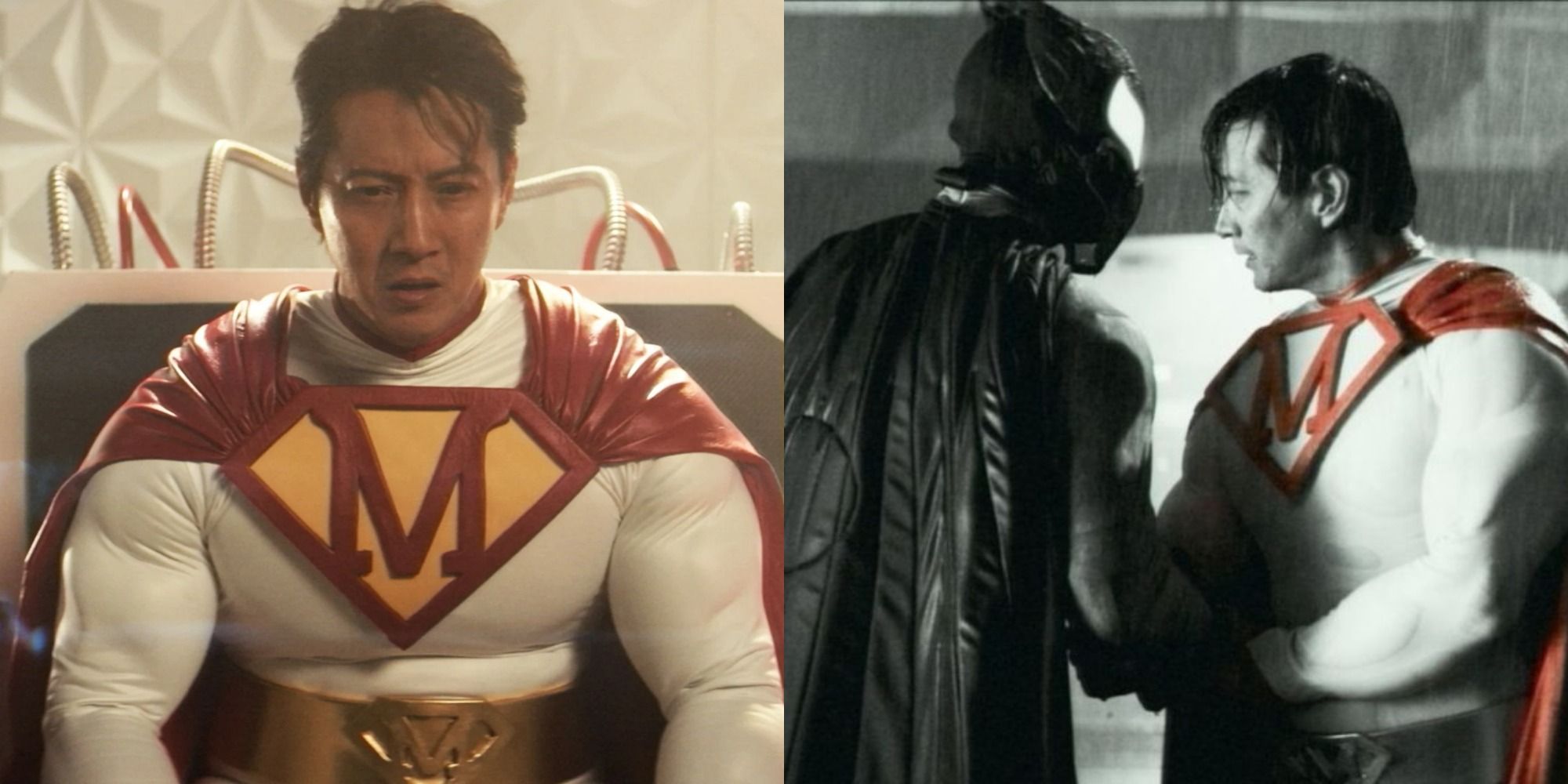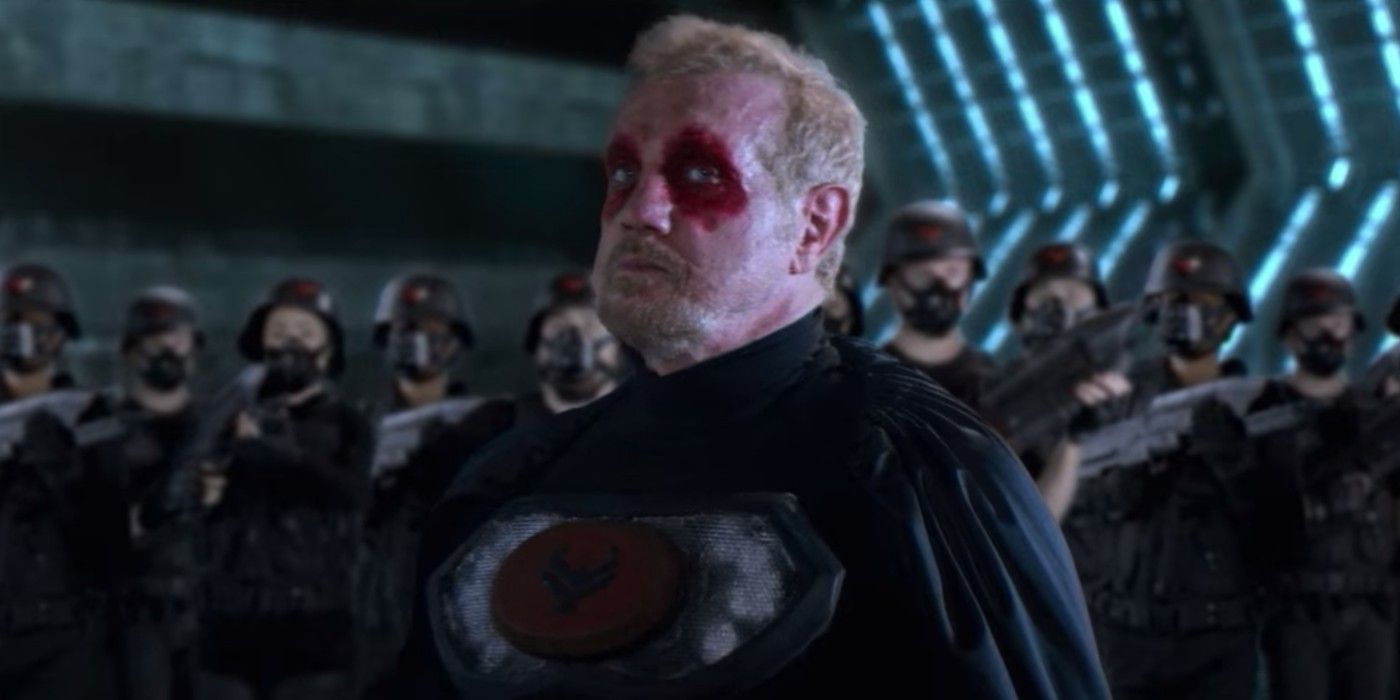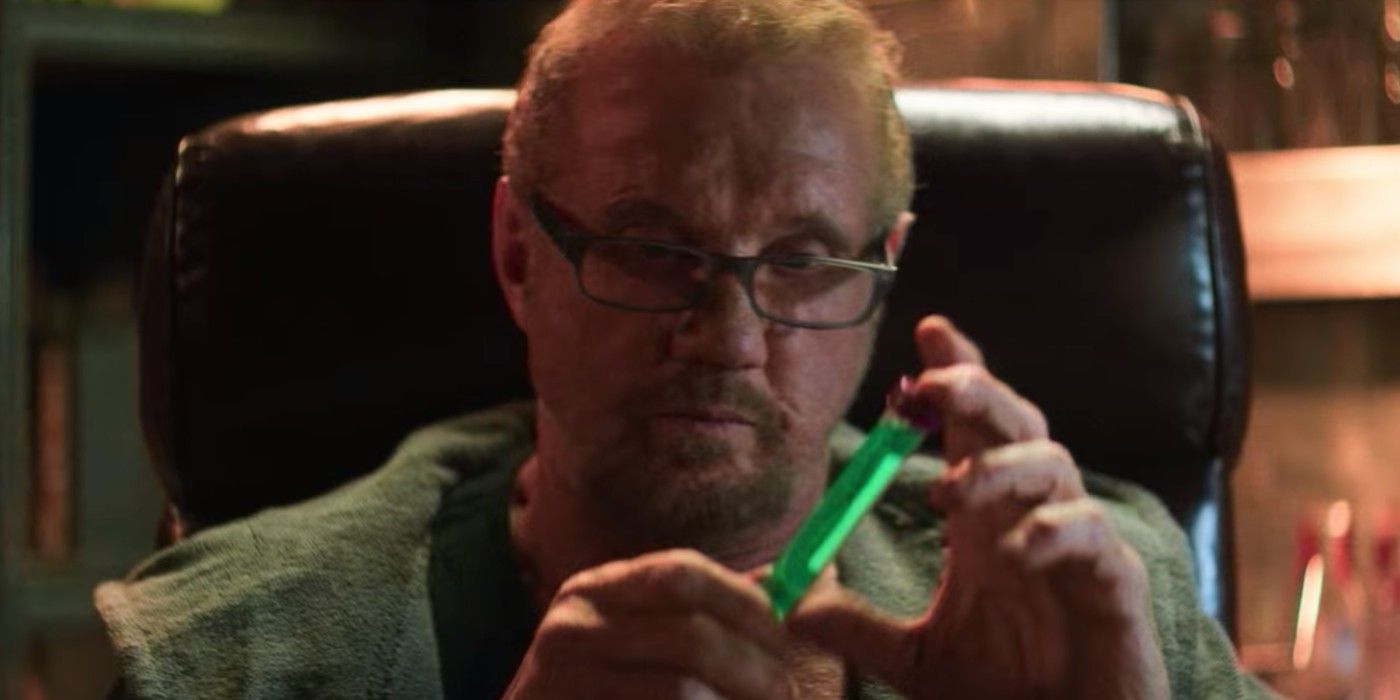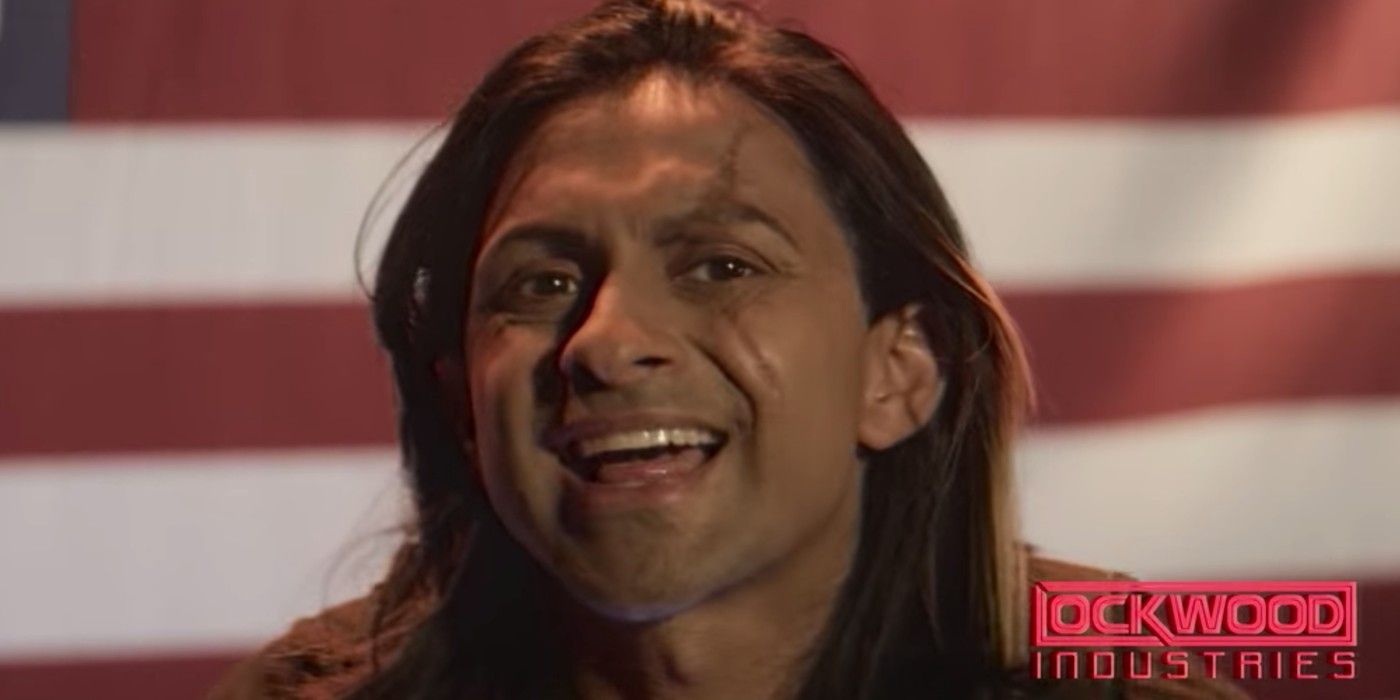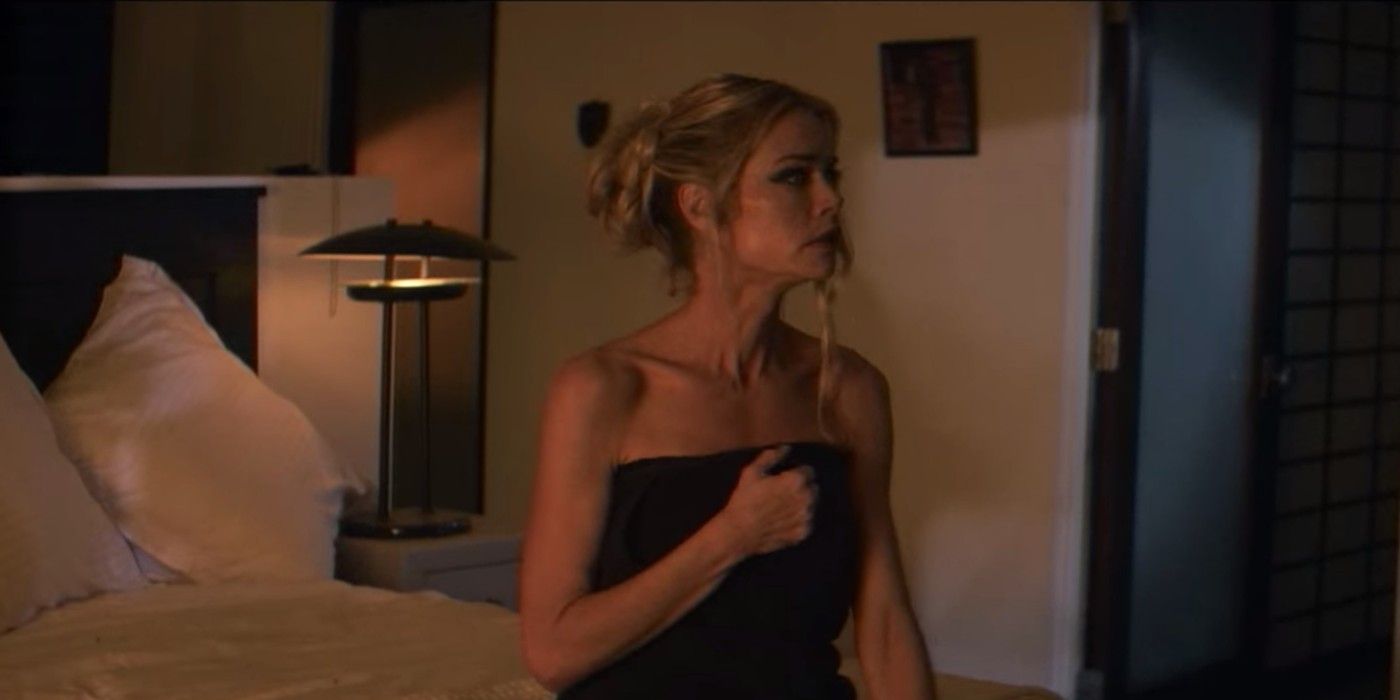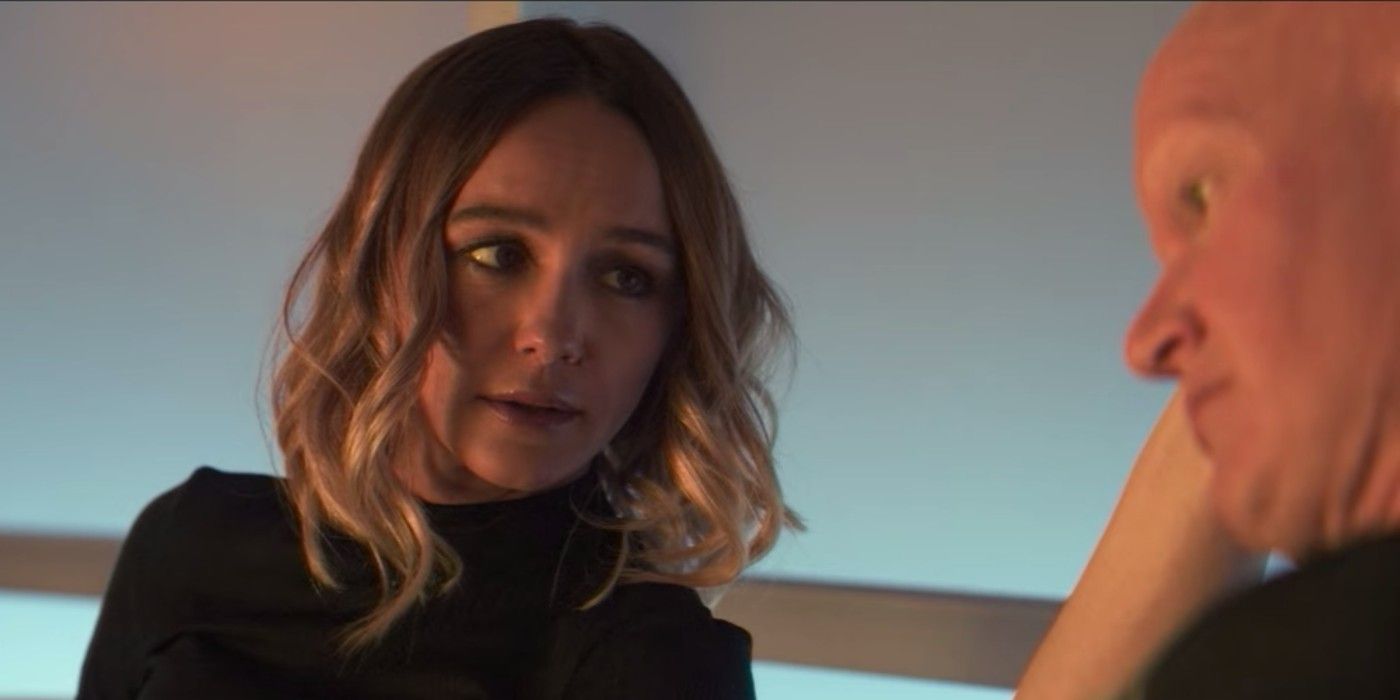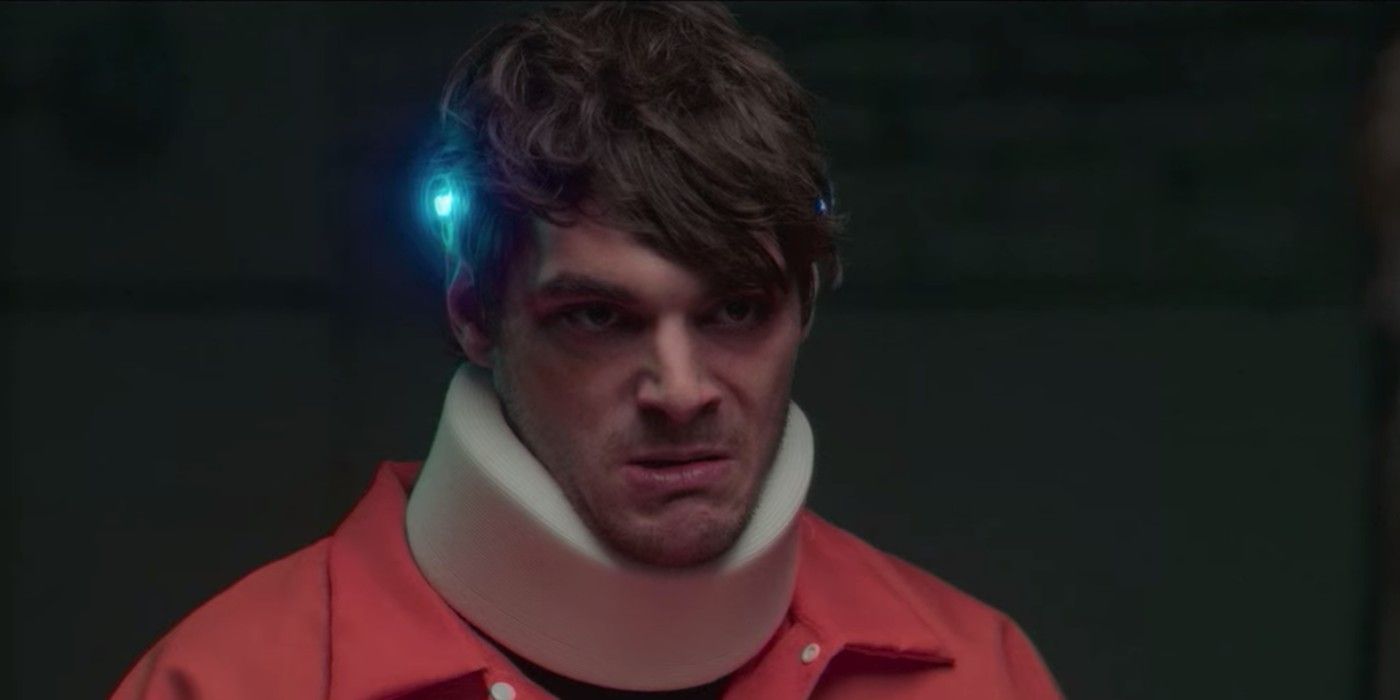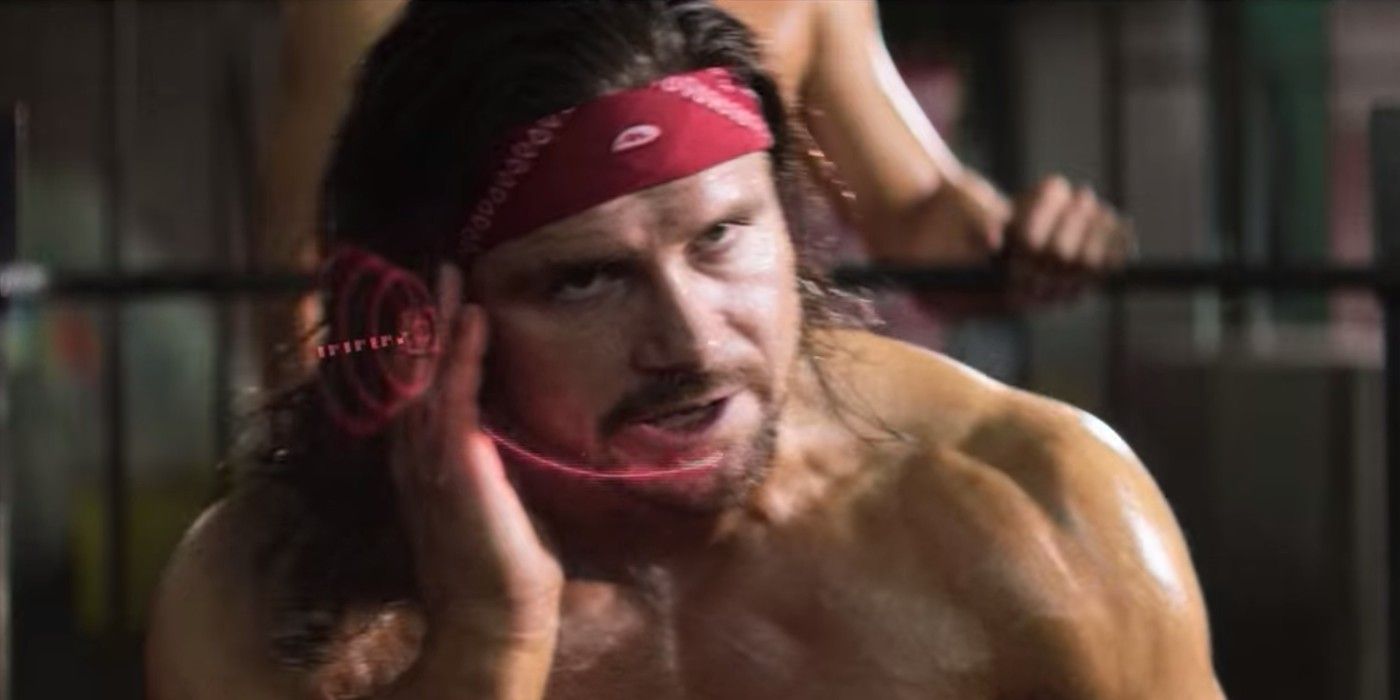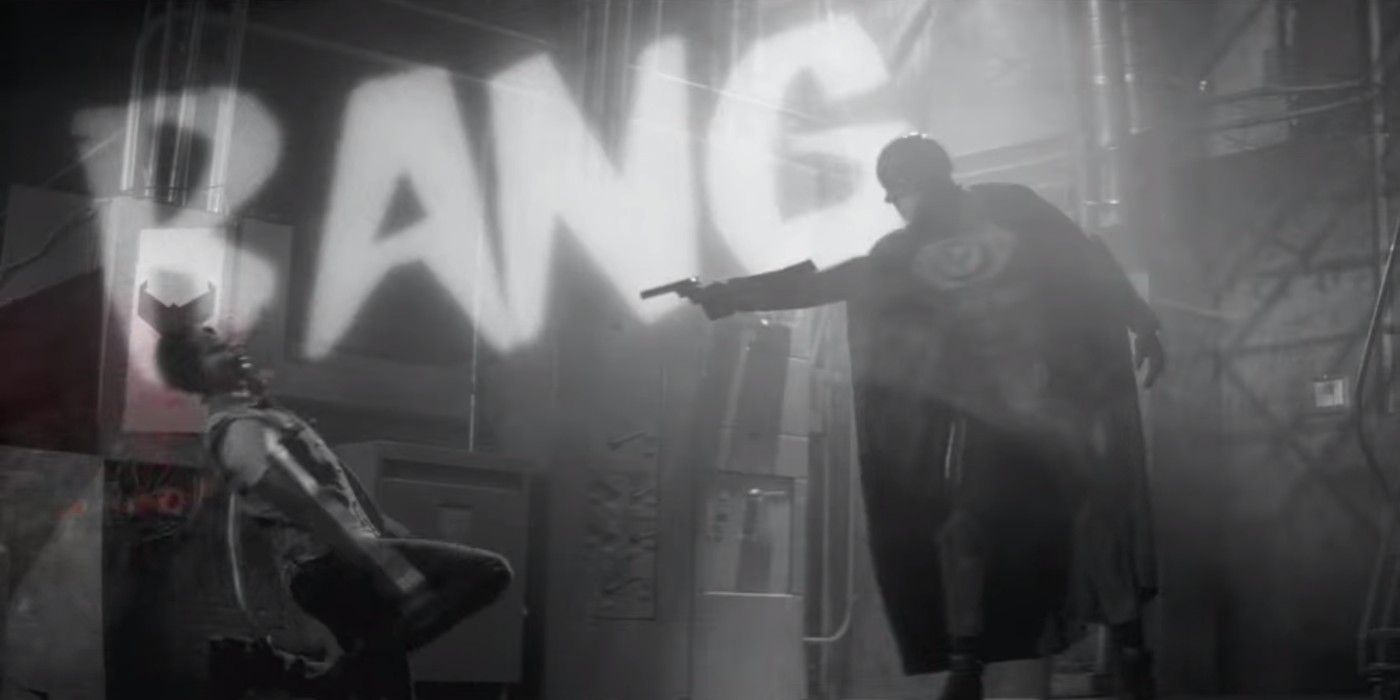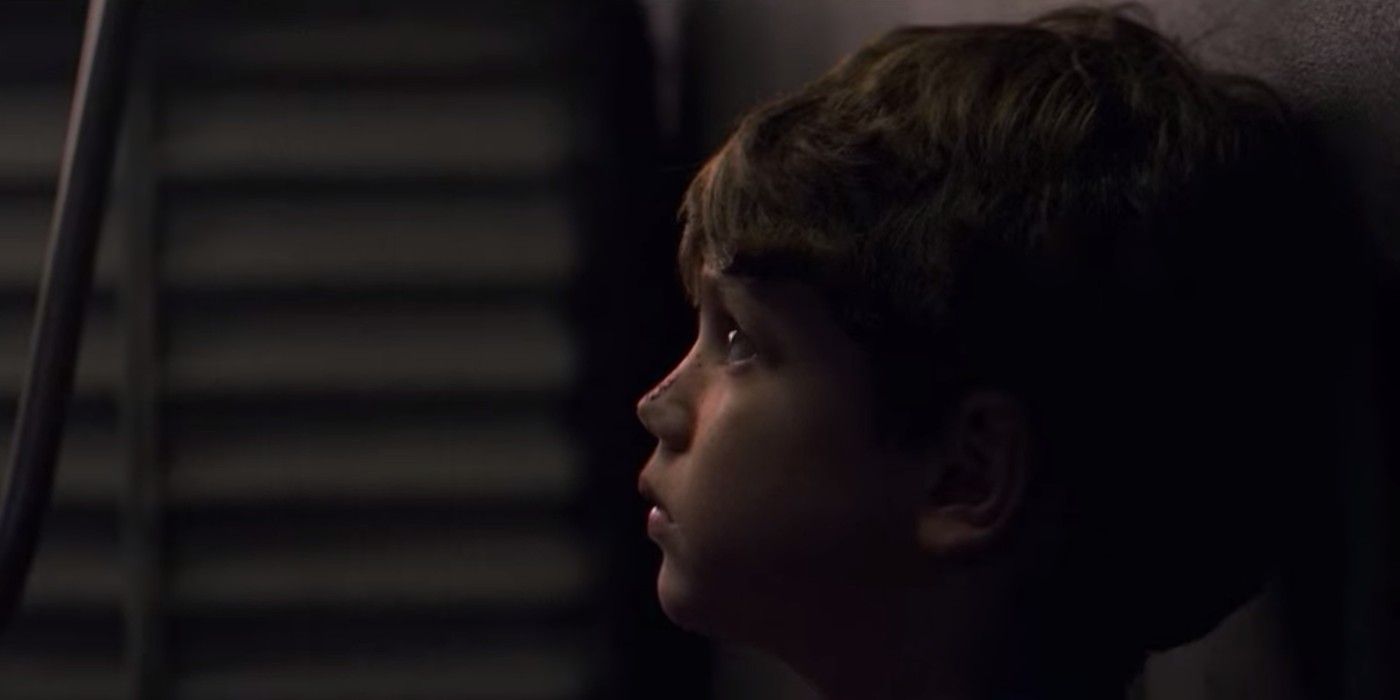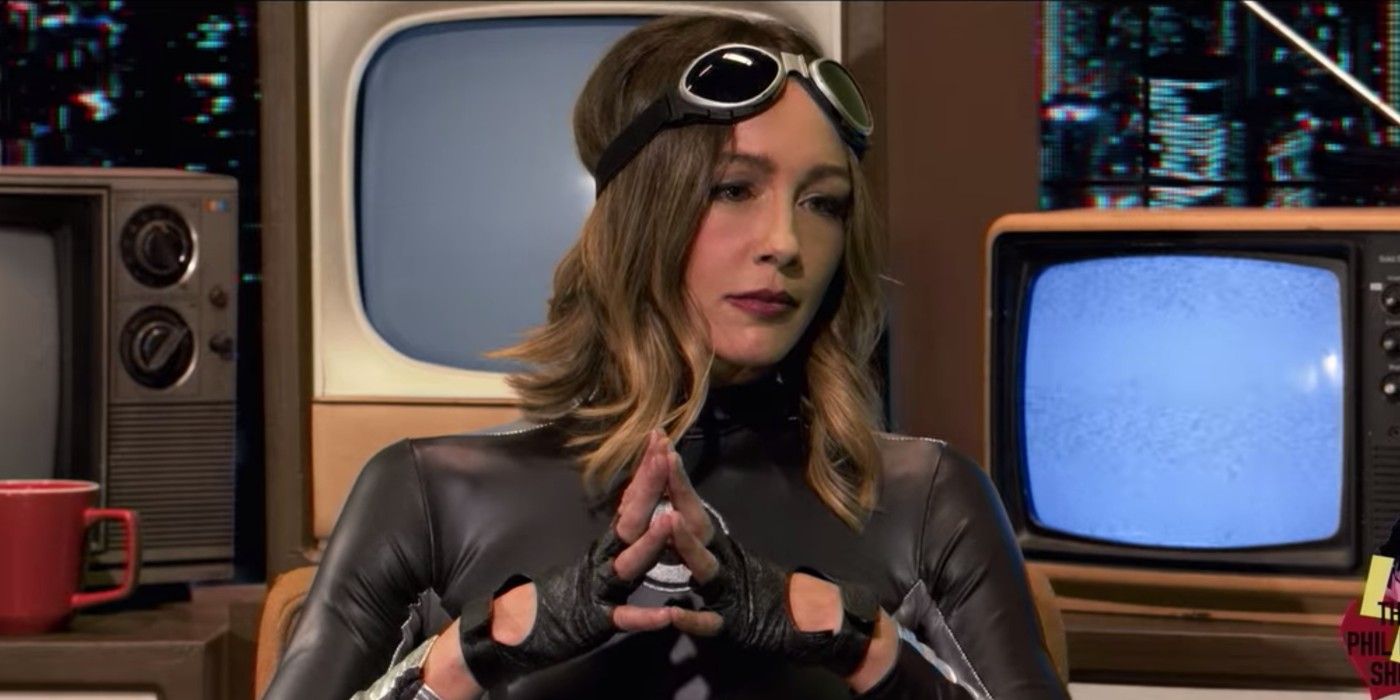This article contains references to suicide and murder
The Guardians of Justice is Netflix’s newest dark superhero show, one that parodies the DC Universe. The show begins with the apparent suicide of Marvelous Man, the show’s stand-in for Superman. When questions arise as to whether it was suicide or murder, Night Hawk and the other Guardians of Justice need to keep the peace and determine who was responsible for Marvelous Man’s death.
The show uses its caricatures of DC superheroes to tell an incredibly political story, exploring the way that heroes can turn into dictators and the world falls into violence. The show is laden with propaganda images and political messages, as well as critiques on the superheroes it uses to tell its story.
A Change In World Values
"I Meant What I Said, Rebecca. You Keep Me Honest. Unfortunately, We’re Now In A World Where Honesty Will Get You Killed."
Gone are the days of colorful superheroes helping citizens get cats out of trees. Batman especially has gone through an image makeover, favoring the dark and the gritty. The Guardians of Justice reflected that accordingly, positioning Knight Hawk as a scary superhero who doesn't really seem like a good guy at all.
In order to defeat a potentially greater threat, Night Hawk is willing to kill the superheroes that keep him honest and value freedom from his totalitarian regime. His willingness to do anything means that he quickly turns on his former allies when they oppose his villainous actions.
A Critique On Wartime Media
"Fight Terrorism With Voyeurism. The Ratings Will Be Historic."
American society has turned into a voyeuristic media environment in the last several decades, with citizens watching war and terrorism play out on their televisions. This quote critiques both the consequences of that visibility and the media networks that put high ratings above the betterment of society.
Red Talon turns the fight against Anubis into something like a video game, which downplays the severity of the threat and of the deaths playing out on screen, including his own.
Destroying Good And Evil
"These Men, Women, And Now Children Dress Up As Cartoon Characters In A Shameless Attempt To Play, And Really Prey, On Our Innocent Childhood Fantasies Of Good Versus Evil."
Lockwood, The Guardians of Justice's take on Lex Luthor, makes some good points in his critiques of the superheroes in his world. The world is full of shades of grey, but superheroes make everything seem cut and dried when it comes to good and evil.
This morally simplistic view of heroes comes in contrast with the darker, edgier take on superheroes, like Peacemaker and The Boys. When the world is dark and complex but portrayed as simplistic and dualistic, it is easy to fall prey to propaganda.
A Surprisingly Personal Heartbreak
"You Know What I Thought If I Married Him? I’d Be Special. I’d Be Important. But I Wasn’t. I Drowned In His Shadow."
The character of Laura Louis provides a small-scale look at life in the shadow of gods. Superman—or in this case Marvelous Man—is impossible to live up to, and in this case, he doesn't even love her. Laura is put into a terrible position, unable to be anything less than perfect, with nothing but pressure given to her in return.
Even the relatively straightforward offense of cheating is more complicated than it seems at first glance in a world where superheroes marry everyday people.
A Critique Of The Batfamily
I Mean, How Can You Trust The Judgment Of A Man Who Puts A Little Boy In A Costume And Lets Him Fight Crime?
The Batfamily is a beloved part of the DC Comics universe, but it brings up a lot of questions about child safety, especially when looking at the tragedy of Jason Todd and the training of Damian Wayne. There are a lot of dangers inherent in letting a teenager (or younger) be a superhero, and The Speed addresses them here.
Training children into loyal soldiers, largely indifferent to the violence around them, is a concerning behavior, and one that establishes an early pattern of Night Hawk's darker side. He barely responds to the death of Red Talon before sending Little Wing in to end the conflict with Anubis. What does this say about the character's parallel, Batman, and the people who love him so much?
A Lesson On Marginality And Bigotry
"You Would Be Shocked How Many Powerful People Live Their Lives In Shame."
One of the biggest surprises in The Guardians of Justice was that Marvelous Man was in a relationship with the villain, Mind Master.
While most people would like to believe that modern America wouldn't turn on a hero for his sexuality, plenty of powerful people do hide their differences for fear of losing their status because of it. There is a lot of pressure in being idolized, and that eventually leads Marvelous Man to take his own life.
A Portrait Of Hyper-Patriotic Masculinity
"They’re The Opposite Of Everything That’s Dope About America."
Red Talon, who is meant as a blending of Nightwing and Red Hood, is put forward as a product of the toxic environment that Night Hawk created. He is violent, nationalistic, and aggressive, and is positioned as an exaggeration of the kind of person raised on the darker version of Batman.
He is gratuitously violent and believes in his own invulnerability, which works against him when he is defeated by a grenade from an Anubis agent. The message being portrayed is that violence and overconfidence do not (and should not) guarantee success.
How Heroes Become Villains
"The Journey Toward Villainy Is Long, But It Always Begins With A Single, Simple, Justifiable Compromise."
DC has been notable for its attempts to show a superhero that becomes darker than his villain, but Batman has always been able to reject those attempts. The most famous examples involve the Joker, who killed Jason Todd in Death in the Family and assaulted and paralyzed Barbara Gordon in The Killing Joke. The premise had always been that one bad day could turn a hero into a villain, and fans have argued fiercely about the good it would do to kill the Joker.
The Guardians of Justice show a slippery slope argument for why Batman can never give in. Knight Hawk kills his opponent, Mr. Smiles, and that decision (despite being justified by decades of comic book lovers' arguments) directly leads to Knight Hawk's eventual takeover.
A Critique Of Militaristic Indifference
"In A Clash Between Two Empires, There Are No Heroes; Only Victims. Only Ordinary Souls With The Sad Misfortune Of Being Born On The Wrong Side Of A Border."
War is horrific, but it so easily gets excused through us vs them rhetoric that explains that there are bad guys who need to be stopped and heroes who are trusted to stop them. The war that plays out in The Guardians of Justice tries to reject that mentality, showing the victims who are hurt on either side.
The narrator says the above quote, and it, along with the on-screen violence, sends an important message to viewers: war is not worth it, no matter how righteous the heroes claim to be.
An Exploration Of How Peace Plays On Screen
"At The End Of The Day, Boring Is Good. Marvelous Man Was Boring Because He Was Benevolent. It Isn’t Punching That Will Save Us. It’s The Boring Stuff. Peace Is Boring."
Fans often critique Superman for being boring in comparison to other comic book heroes, and Guardians of Justice doubles down on that interpretation, having The Speed call Marvelous Man boring by her standard. But, as she says, boring is good.
More 'interesting' characters are ones who have to fight more aggressively, more deviously. They are ones who are more easily tempted by the darkness, and who make morally questionable choices. But a perfect figure, doing only good, would be boring. And that's the kind of hero the world really needs.

